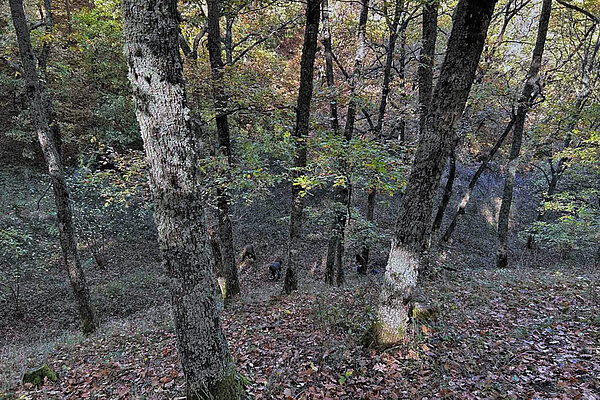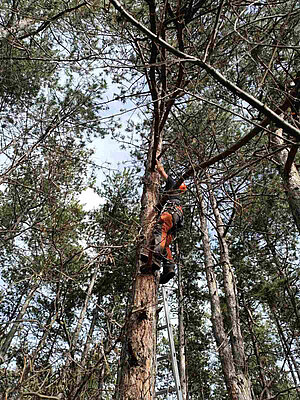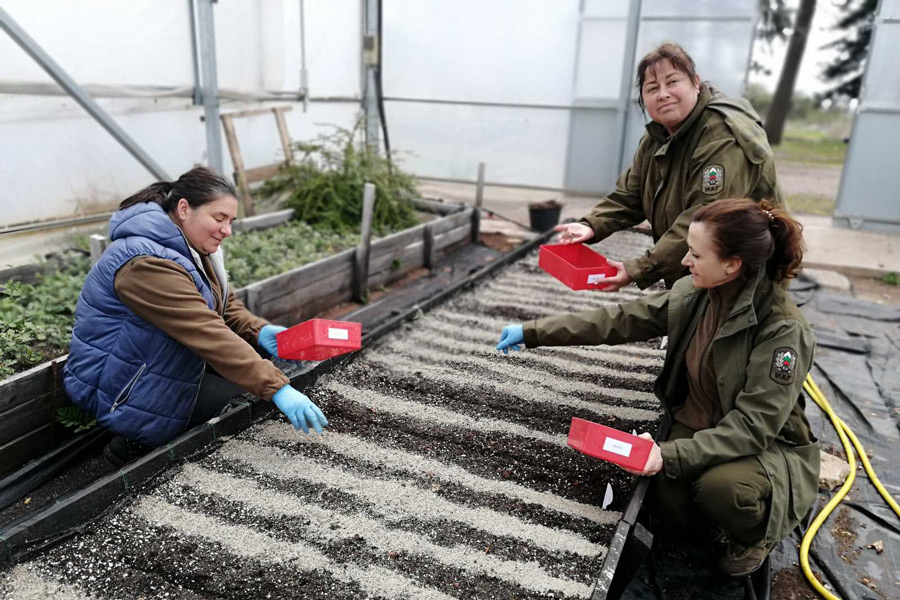At the heart of sustainable forestry lies the meticulous and often overlooked process of seed collection. Spearheaded by a dedicated team from the EFA/FSCS – Forest Seed Control Station in Sofia, Bulgaria, the efforts of Mariya Belovarska and her team members Lidia Georgieva, Antonia Nikolova, Lubomira Kouova, Stanimira Shuleva, and Hristofor Georgiev are crucial in securing the future of our forests.
Seed collection is a multi-stage endeavour that begins with detailed observations and analyses of the flowering and fructification of various tree species. From there, fruits and seeds are meticulously gathered and processed, each step tailored to preserve the integrity and quality of these vital components. Once harvested, seeds undergo cleaning, sorting into lots, packaging, and labelling before they are deemed ready for further use.
The role within OptFORESTS: long-term objectives
Working amidst Bulgaria’s diverse geography and temperate climate, the team focuses on a variety of coniferous and broad-leaved species. The collection methods vary depending on the species, ranging from gathering directly from trees to collecting fallen fruits from the ground. This diversity in methods ensures that seeds from species like white and black pine, fir, spruce, oak, sycamore, ash, linden, and beech are efficiently gathered and processed.
Under the OptFORESTS initiative, the seeds collected serve a pivotal role in establishing next-generation common garden trials aimed at assessing tree adaptation and resilience. Strategic collection from core and marginal populations allows for comprehensive studies that evaluate the performance and resilience of different provenances over time. These insights are crucial for modelling germination niches and assessing the success of Forest Genetic Resources (FGR).

Post-collection, sampled seeds undergo rigorous germination tests to determine their viability. This critical step assesses the potential of seeds to sprout and grow under optimal conditions, thereby guiding decisions on seed quality and sowing rates.

Forestry insights and early warnings
The team has noted significant impacts of climate change on seed collection. Increasingly dry and hot summers have led to reduced seed yields and diminished seed quality, with some species showing lower germination rates in adverse conditions. Species like Acer campestre and Prunus avium are particularly vulnerable, their reproduction cycles disrupted by shifting climatic patterns.
While their work may often go unnoticed, the insights gained from seed collection provide critical early warnings for forest management. Observations of diminished mast years and reduced adaptability in certain species serve as vital indicators of future challenges. High-quality seeds sourced sustainably from resilient provenances are essential for maintaining healthy forests capable of withstanding environmental pressures.
The efforts of Mariya Belovarska and her team underscore the profound importance of seed collection in safeguarding our forests against the impacts of climate change. Their meticulous work not only ensures the continuity of diverse tree species but also provides invaluable data that informs sustainable forest management practices. As climate variability continues to shape our landscapes, the dedication of seed collectors remains integral to the resilience and longevity of our forests.
